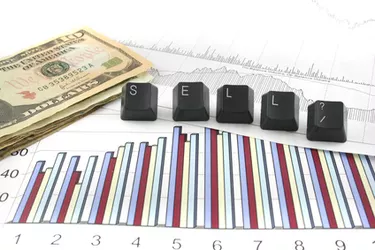
While there are different methods to compute a company’s cost of equity, it is essentially the amount of return a company needs to provide on its shares, through dividends and appreciation, which will compel investors to purchase them and thus fund the company. It can also be viewed as a measure of the company’s risk, since investors will demand a higher payoff from shares of a risky company in return for exposing themselves to higher risk. As a company’s increased debt generally leads to increased risk, the effect of debt is to raise a company’s cost of equity.
How Debt Affects Profits
Video of the Day
Taking on debt to fund a company is known as leveraging, or gearing, because the debt works to amplify the firm’s gains or losses. Consider a firm able to borrow money or issue bonds at 7 percent interest. If the company makes a 10 percent return on its assets in a good year, taking on the debt is a good idea, as the return outweighs the interest owed. By increasing the company’s assets, the debt funding has also increased its profits. In the case of a bad year, however, with the firm returning 4 percent on its assets, the debt will lower profits even further than normal, since the cost of the interest is greater than the return.
Video of the Day
Equity Pricing
The more debt a company has increases the volatility of its profits and therefore its risk. Volatility is an important factor in formulas which help investors to determine the fair price of a stock. One of the most popular formulas, the capital asset pricing model or CAPM, basically states that as volatility increases, investors should expect larger returns. This means that the shares of companies with higher debt (and higher volatility) are expected to have bigger returns than similar companies with less debt.
Equity Funding
When a company with a large amount of debt attempts to issue equity, or shares, to fund itself, the cost of this equity will be relatively higher in terms of expected dividends and share appreciation. If its share price fails to hit the target, the company could see its value drop, as investors view the company as an underperformer. It should also be noted that as a company’s leverage, or proportion of debt to equity increases, the cost of equity increases exponentially. This is due to the fact that bondholders and other lenders will require higher interest rates of companies with high leverage.
Using Debt Effectively
The effects of debt on the cost of equity do not mean that it should be avoided. Funding with debt is usually cheaper than equity because interest payments are deductible from a company’s taxable income, while dividend payments are not. In addition debt can be refinanced if rates move lower, and eventually is repaid; once issued, shares represent the perpetual obligation of dividends and a dilution of company control.
Effect on Investors
Investors often view companies that take on risk as dynamic and having potential for growth. They realize that to achieve higher returns they will have to invest in riskier companies. If a firm is wise about its debt ratio and how it uses its increased profits, taking on debt can make the company more attractive to investors.